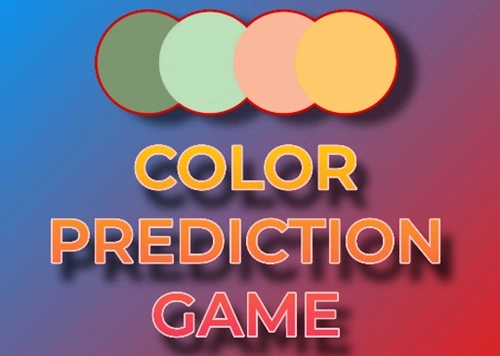Online gaming has seen exponential growth in India, with millions of users engaging in various types of games daily. Among these, colour prediction games have emerged as a popular form of entertainment. These games promise quick rewards by predicting the outcome of simple colour-based events, often involving a small wager. However, the legal status of such games in India remains a gray area, and players must be aware of the nuances before participating.
What is a Colour Prediction Game?

Colour prediction games are online platforms where players predict the outcome of colour combinations or sequences. These games are designed to be simple, requiring minimal effort or strategy. Players place a bet on their prediction, and the result determines whether they win or lose. The appeal lies in their simplicity and the promise of immediate monetary rewards.
The games often feature vibrant interfaces and are marketed as casual entertainment. However, they operate on the fine line between games of chance and games of skill, which is central to understanding their legality.
The Legal Framework for Online Gaming in India
India does not have a unified national law governing online gaming. Instead, the legal landscape is shaped by a mix of federal and state laws. The distinction between a game of skill and a game of chance is crucial in determining legality.
1. Games of Skill vs. Games of Chance
- Games of Skill: These involve a significant amount of knowledge, judgment, and strategy. Examples include chess, rummy, and fantasy sports. These are generally considered legal in most Indian states.
- Games of Chance: These rely purely on luck, such as lottery or roulette. Many states classify these under gambling, which is either restricted or banned.
2. Public Gambling Act, 1867
This colonial-era law prohibits gambling in public spaces and establishments. However, it does not explicitly address online gaming, leaving a loophole for interpretation.
3. State-Level Regulations
Some states, such as Goa and Sikkim, have legalized certain forms of gambling under regulated conditions, while others, like Telangana and Andhra Pradesh, have outright bans on real-money gaming.
Where Do Colour Prediction Games Stand?
The classification of colour prediction games is contentious. While they may appear simple and harmless, they largely depend on random outcomes, aligning them more closely with games of chance. This creates potential legal issues in states where gambling is restricted.
1. States with Restrictions: In states like Telangana, Andhra Pradesh, and Tamil Nadu, where laws explicitly ban games of chance involving monetary transactions, colour prediction games may be deemed illegal.
2. Regulated Markets: In states like Sikkim and Nagaland, where certain online gaming platforms can operate under licenses, these games might find a regulated avenue. However, such licenses are typically granted to platforms adhering to strict guidelines.
3. Unregulated Areas: In states without specific laws addressing online gaming, these games operate in a legal gray area. While not explicitly banned, their legality remains untested in courts.
Risks Associated with Colour Prediction Games
Even in regions where these games are not outright illegal, participating in them comes with several risks:
1. Lack of Regulation: Many platforms hosting colour prediction games operate without oversight, raising concerns about fairness, transparency, and potential scams.
2. Addiction and Financial Loss: The promise of quick rewards can lead to addictive behavior, with players often losing significant amounts of money.
3. Legal Consequences: Players may face legal action in states where such games are deemed illegal, even if they were unaware of the local laws.
4. Data Privacy: Many platforms lack robust data protection policies, leaving players’ personal and financial information vulnerable to breaches.
Responsible Gaming: A Must for Players
If you are considering participating in a colour prediction game, it is essential to:
- Understand Local Laws: Familiarize yourself with the gaming regulations in your state.
- Verify Platform Authenticity: Use platforms that are licensed and have a good reputation.
- Set Limits: Avoid betting more than you can afford to lose.
- Avoid Addiction: Treat these games as a form of entertainment, not a way to make money.
Conclusion
The legal status of colour prediction games in India depends on several factors, including state laws and the game’s classification as one of skill or chance. While they operate in a legal gray area in many regions, players must exercise caution and responsibility. As the Indian gaming industry evolves, clearer regulations may emerge, providing better clarity for enthusiasts and operators alike. Until then, staying informed and playing responsibly is the best way forward.

